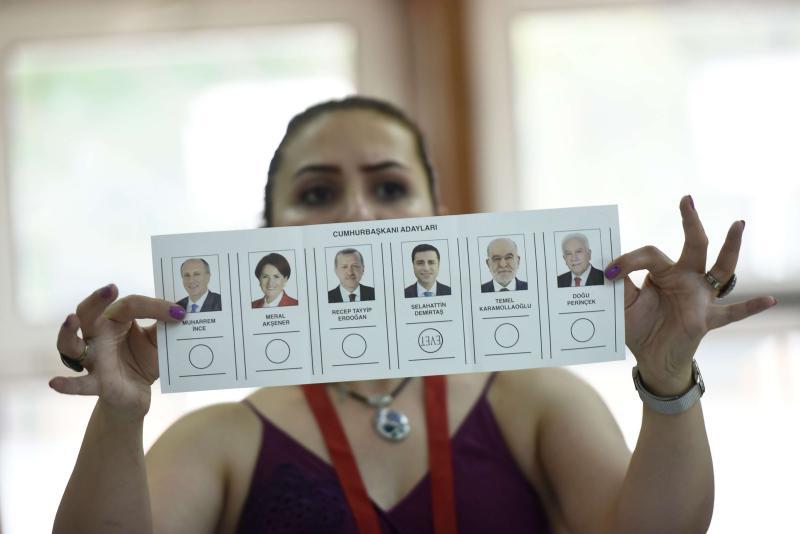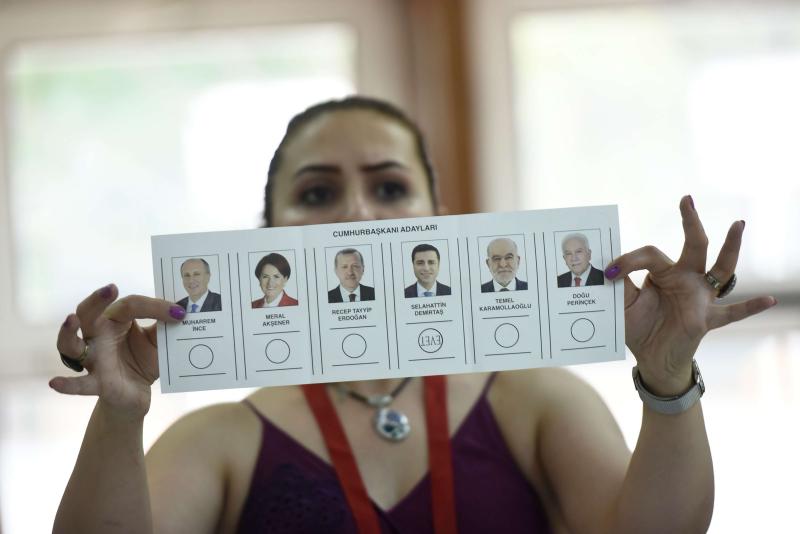How the Kurdish-rooted HDP party survived Erdogan’s onslaught
Erdogan the sultan. Erdogan the victor. The results of Turkey’s presidential and parliamentary elections have shown the world that one man — and one man alone — is in charge in Turkey.
Under the all-dominating, all-victorious Justice and Development Party (AKP) win in which Recep Tayyip Erdogan secured the presidency with 52.6% of the vote and a majority in parliament, another political movement has cause for celebration.
The minority-focused Peoples’ Democratic Party (HDP) defied the odds and made it past the 10% threshold to enter parliament. It secured about 67 seats, despite 4,000 officials and supporters imprisoned since 2015 and its former co-leader, Selahattin Demirtas, running for president from a jail cell. The HDP could count on almost no positive exposure during the campaign in the rabidly pro-government media.
“While other candidates could stage 100 campaign rallies, I was able to send out 100 tweets,” said an exasperated Demirtas after the vote. Prior to the elections, Erdogan was caught on camera telling AKP activists in Ankara that “if the HDP falls below the election threshold it would mean that we would be in a much better place.”
Despite the overt oppression, the HDP came out of the elections a robust, multiplatform and progressive alternative to the doom and gloom that has recently coloured life in Turkey. Founded just five years ago, the HDP is now the third largest party in Turkey.
It achieved this despite losing votes in its traditional stronghold — the Kurdish-majority south-east region, including more than 6% in Diyarbakir, the unofficial capital for Kurds in Turkey.
How has the HDP endured?
There have been suggestions that traditional secular-nationalist voters from the Republican People’s Party (CHP), a social-democratic party, backed HDP candidates. The argument goes that CHP voters were trying to prevent Erdogan’s AKP winning a majority in parliament. That’s an unlikely theory, given the deep ideological differences between the CHP and HDP.
Instead, the answer may lie in the fact the HDP pursued a message of inclusivity and tolerance in the face of a negative onslaught by the Turkish authorities and media. What else explains the HDP’s electoral gains in Istanbul province?
In the November 2015 election, the HDP won just seven seats. On June 24, it secured 12. How to explain that nearly two-fifths of the HDP’s parliamentary representatives will be women, compared to 17% for the AKP?
A further point: The HDP’s co-chairmen are vying for further gender equality, recently stating: “We realise that it is a shortcoming in achieving the goal of equal representation.”
Though Erdogan succeeded in nearly every plan he put in place in the past 15 years, he’s failed to stamp out Kurdish aspirations. What the election results make clear is that the HDP is no longer simply an issues-focused party but an emerging multi-interest movement set to grow.
Speaking to Hisyar Ozsoy, the HDP’s deputy chairman, the day after the election, there was a distinct sense that he felt the party could have done even better had it been given half a chance. This is a party with big ambitions and one that has not been cowed by the violence to which it’s been subjected.
The question remains what Erdogan will do. Now that he has an absolute grip on Turkey through his newly minted executive presidency, will Erdogan care enough to go after the HDP and the Kurdish minority once again?
After the election, it appears the HDP’s nemesis may turn out to be the ultranationalist Nationalist Movement Party (MHP) party, the junior partner in the AKP’s parliamentary alliance. For the MHP, reconciliation with the Kurds is anathema.
The HDP does not look to be courting support from its fellow opposition parties, claiming their “timid and anxious attitude regarding the development of democratic opposition” failed to “prevent the institutionalisation of the one-man regime.”
It’s clear that no credible alternative to Erdogan exists in Turkey but, under the surface, a new political alternative is slowly forming. The HDP is central to that. Don’t say it too loudly but there may be another movement taking root in Turkey, one that seeks a more inclusive future for all.
Stephen Starr is an Irish journalist who lived in Syria from 2007 to 2012. He is the author of Revolt in Syria: Eye-Witness to the Uprising (Oxford University Press: 2012).
This article was originally published in The Arab Weekly.







